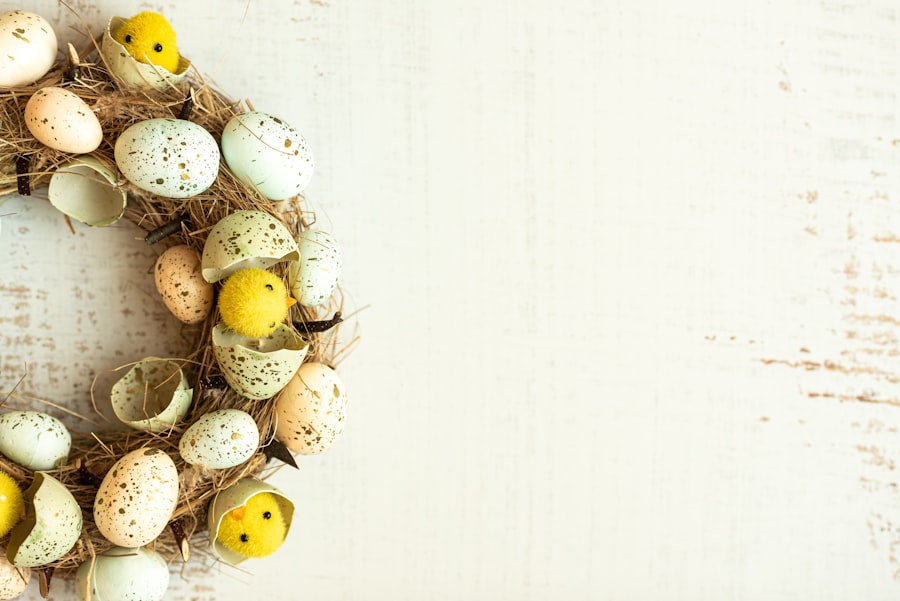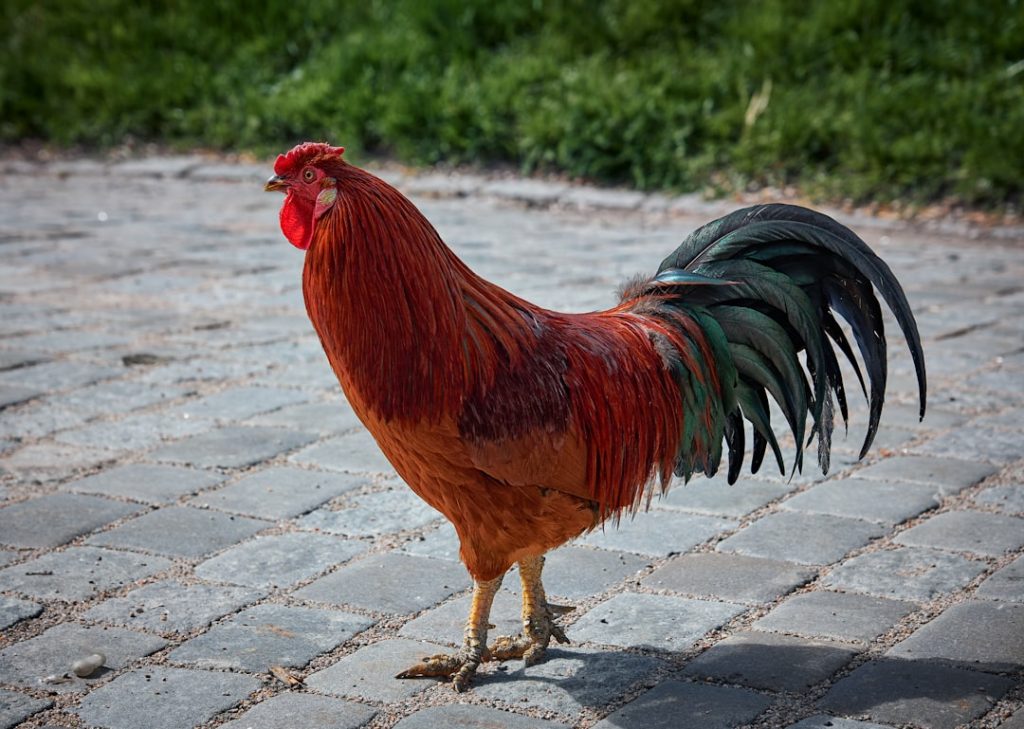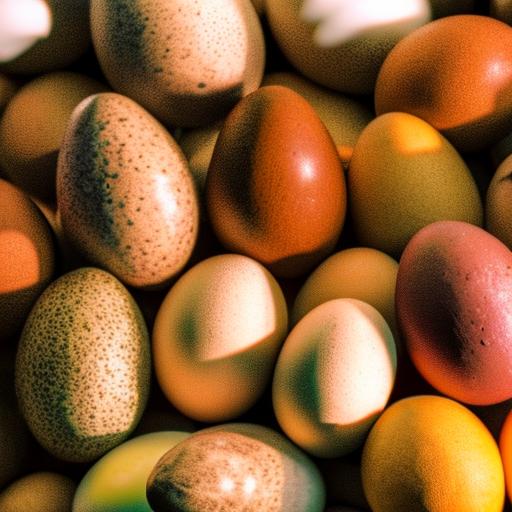Heritage chicken breeds are traditional poultry varieties that have been cultivated for centuries, originating from ancestral farming practices. These breeds have evolved to thrive in diverse climates and environments, demonstrating remarkable adaptability. Characterized by their robustness, foraging capabilities, and natural brooding instincts, heritage chickens differ significantly from commercial breeds.
Rather than being optimized for maximum production, these breeds are valued for their unique traits and flavor profiles. Heritage chickens exhibit a wide range of physical characteristics, including diverse colors, sizes, and body shapes. These traditional breeds play a vital role in preserving agricultural heritage and maintaining genetic diversity within the poultry population.
They are particularly well-suited to sustainable farming methods, such as free-range and pasture-based systems. By raising heritage chickens, farmers contribute to the conservation of valuable genetic resources for future generations. Moreover, these breeds often possess stronger immune systems and increased disease resistance compared to commercial varieties, making them an attractive option for small-scale farmers seeking to reduce dependence on antibiotics and other medical interventions.
Table of Contents
- 1 The Importance of Preserving Heritage Chicken Breeds
- 2 Characteristics of Different Heritage Chicken Breeds
- 3 Popular Heritage Chicken Breeds for Small-Scale Farming
- 4 Challenges in Raising Heritage Chicken Breeds
- 5 How to Select the Right Heritage Chicken Breed for Your Farm
- 6 Resources for Learning More About Heritage Chicken Breeds
- 7 FAQs
Key Takeaways
- Heritage chicken breeds are traditional breeds that have been raised for generations and are known for their hardiness, foraging abilities, and flavorful meat and eggs.
- Preserving heritage chicken breeds is important for maintaining genetic diversity, promoting sustainable agriculture, and preserving cultural heritage.
- Different heritage chicken breeds have unique characteristics such as feather color, egg color, temperament, and foraging abilities.
- Popular heritage chicken breeds for small-scale farming include the Rhode Island Red, Plymouth Rock, and Orpington, known for their adaptability and productivity.
- Challenges in raising heritage chicken breeds include lower egg production, longer time to reach maturity, and potential difficulty in finding purebred stock.
- When selecting the right heritage chicken breed for your farm, consider factors such as climate, space, purpose (meat or eggs), and personal preferences.
- Resources for learning more about heritage chicken breeds include breed associations, online forums, and books on poultry farming.
The Importance of Preserving Heritage Chicken Breeds
Genetic Diversity and Sustainability
By preserving these breeds, we can help ensure that future generations have access to a diverse gene pool that can be used to develop new breeds with desirable traits such as disease resistance, foraging ability, and flavor.
Cultural and Culinary Significance
In addition to their genetic value, heritage chicken breeds also play an important role in preserving cultural traditions and culinary diversity. Many heritage breeds are valued for their unique flavors and textures, making them popular choices for chefs and food enthusiasts. By preserving these breeds, we can help maintain the culinary heritage of different regions and ensure that traditional dishes continue to be enjoyed for years to come.
Economic Opportunities
Furthermore, raising heritage chicken breeds can also provide economic opportunities for small-scale farmers, as they can market their products to consumers who value the unique qualities of these traditional breeds.
Characteristics of Different Heritage Chicken Breeds

Heritage chicken breeds come in a wide variety of shapes, sizes, and colors, each with its own distinct characteristics and qualities. Some popular heritage breeds include the Rhode Island Red, Plymouth Rock, Orpington, Sussex, and Wyandotte. These breeds are known for their hardiness, good egg-laying abilities, and excellent meat quality.
They also come in a range of colors, from the classic reds and browns to striking black and white patterns. In addition to these well-known breeds, there are also lesser-known heritage breeds that are valued for their unique traits. For example, the Buckeye breed is known for its excellent foraging abilities and cold-hardiness, making it well-suited to free-range systems in colder climates.
The Delaware breed is prized for its fast growth rate and high meat quality, making it a popular choice for small-scale meat production. Each heritage breed has its own set of characteristics that make it well-suited to specific farming systems and environments.
Popular Heritage Chicken Breeds for Small-Scale Farming
For small-scale farmers looking to raise heritage chicken breeds, there are several popular options to consider. The Rhode Island Red is a classic choice, known for its excellent egg-laying abilities and good meat quality. This breed is well-suited to free-range systems and can thrive in a variety of climates.
The Plymouth Rock is another popular choice, valued for its calm temperament and ability to adapt to different environments. It is also a good dual-purpose breed, producing both eggs and meat. The Orpington breed is known for its large size and gentle nature, making it a popular choice for small-scale meat production.
The Sussex breed is valued for its excellent foraging abilities and ability to thrive in free-range systems. It also comes in a variety of colors, adding visual interest to a flock. The Wyandotte breed is known for its cold-hardiness and good egg-laying abilities, making it well-suited to colder climates.
These popular heritage breeds offer a range of options for small-scale farmers looking to raise traditional chickens.
Challenges in Raising Heritage Chicken Breeds
While heritage chicken breeds offer many benefits, there are also some challenges associated with raising them. One challenge is finding reliable sources for purchasing heritage breed chicks or hatching eggs. Many hatcheries focus on commercial breeds, making it more difficult to find heritage breed stock.
Additionally, some heritage breeds may have specific management requirements that differ from commercial breeds, requiring farmers to do additional research and planning. Another challenge is the slower growth rate of some heritage breeds compared to commercial hybrids. This can make them less profitable for meat production in some cases, as they require more time and resources to reach market weight.
Additionally, some heritage breeds may be more susceptible to certain diseases or parasites, requiring farmers to be vigilant about health management practices.
How to Select the Right Heritage Chicken Breed for Your Farm

Choosing the Right Breed for Egg Production
If you’re primarily interested in egg production, you may want to choose a breed known for its excellent egg-laying abilities. Breeds such as the Rhode Island Red or Sussex are ideal for this purpose.
Considering Climate and Environment
It’s also crucial to consider your climate and environment when selecting a heritage breed. Some breeds are better suited to cold climates, while others thrive in warmer environments.
Space and Resource Considerations
Additionally, consider the space and resources you have available for your chickens. Some heritage breeds are more active foragers and may require more space to roam compared to others.
Resources for Learning More About Heritage Chicken Breeds
For farmers interested in learning more about heritage chicken breeds, there are several resources available. The Livestock Conservancy is an organization dedicated to preserving rare and heritage breeds of livestock, including chickens. They provide valuable information on different heritage chicken breeds, as well as resources for finding reputable breeders.
Local poultry clubs and agricultural fairs can also be great places to learn about heritage chicken breeds and connect with other farmers who raise them. Additionally, there are many books and online resources available that provide detailed information on the characteristics and management of different heritage chicken breeds. In conclusion, heritage chicken breeds play a crucial role in maintaining genetic diversity in poultry and preserving cultural traditions and culinary diversity.
These traditional breeds offer unique flavors and qualities that make them valuable assets for small-scale farmers. While there are challenges associated with raising heritage chicken breeds, there are also many resources available to help farmers select the right breed for their farm and learn how to manage them effectively. By preserving these valuable genetic resources, we can help ensure the long-term sustainability of our food system and maintain the culinary heritage of different regions.
If you’re interested in learning more about heritage chicken breeds, you should check out this article on Poultry Wizard. They have a wealth of information on different chicken breeds, including heritage breeds, and offer tips on how to care for them. Whether you’re a beginner or an experienced chicken keeper, Poultry Wizard has something for everyone.
FAQs
What are heritage chicken breeds?
Heritage chicken breeds are traditional breeds of chickens that have been raised for many generations. These breeds are known for their hardiness, ability to forage, and often have unique characteristics and traits.
What are some examples of heritage chicken breeds?
Some examples of heritage chicken breeds include the Plymouth Rock, Rhode Island Red, Sussex, Orpington, and Wyandotte. These breeds are known for their ability to thrive in free-range environments and for their flavorful meat and eggs.
Why are heritage chicken breeds important?
Heritage chicken breeds are important for preserving genetic diversity in poultry. They often have traits that are well-suited to specific environments and farming practices, and by preserving these breeds, we can ensure the long-term sustainability of poultry farming.
How do heritage chicken breeds differ from commercial chicken breeds?
Heritage chicken breeds often have slower growth rates and are better suited to free-range and pasture-based farming systems. They also tend to have more diverse and unique physical characteristics compared to commercial chicken breeds.
Are heritage chicken breeds at risk of extinction?
Yes, many heritage chicken breeds are at risk of extinction due to the dominance of commercial chicken breeds in the poultry industry. Efforts are being made by conservation organizations and breeders to preserve and promote these breeds.
Meet Walter, the feathered-friend fanatic of Florida! Nestled in the sunshine state, Walter struts through life with his feathered companions, clucking his way to happiness. With a coop that’s fancier than a five-star hotel, he’s the Don Juan of the chicken world. When he’s not teaching his hens to do the cha-cha, you’ll find him in a heated debate with his prized rooster, Sir Clucks-a-Lot. Walter’s poultry passion is no yolk; he’s the sunny-side-up guy you never knew you needed in your flock of friends!







